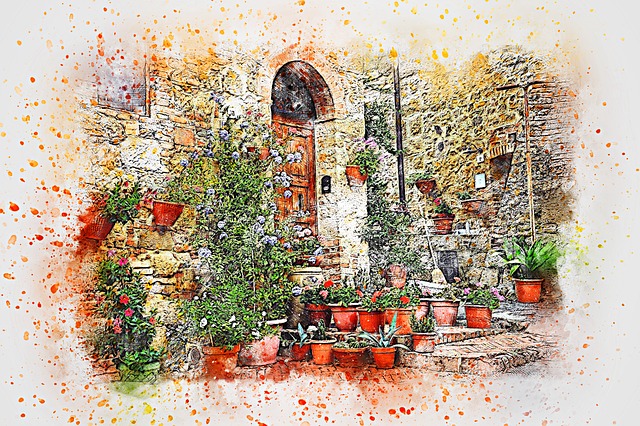Anubis ✔ Anubis: The Guardian of the Afterlife and the Mysteries of Ancient Egypt

Anubis: The Guardian of the Afterlife and the Mysteries of Ancient EgyptAnubis
In the vast expanse of ancient Egyptian mythology, where gods and goddesses ruled the realms of life and death, one figure stands out with an enigmatic aura and a profound significance: Anubis. Revered as the god of mummification and the afterlife, Anubis has captivated the imagination of scholars, historians, and enthusiasts alike. This jackal-headed deity, with a rich tapestry of symbolism and lore, offers a unique lens through which to explore the complexities of ancient Egyptian beliefs surrounding death and the journey to the afterlife.
Anubis, often depicted as a black jackal or a man with a jackal’s head, embodies the duality of life and death. The color black, representing fertility and the rich soil of the Nile, signifies rebirth and the cyclical nature of existence. In contrast, the jackal, a scavenger often seen in cemeteries, symbolizes the connection between the living and the dead. This interplay between life and death is central to Anubis’s role as the protector of graves and the overseer of funerary practices.
The ancient Egyptians placed immense importance on the afterlife, believing that a proper burial and mummification were crucial for securing a favorable passage into the next world. Anubis’s involvement in these rituals reflects his status as a guardian of the deceased. As the god who presided over the embalming process, Anubis ensured that the body was prepared with utmost care to withstand the test of time. His role extended beyond mere preservation; he was the one who guided souls through the perilous journey of the afterlife, safeguarding them from malevolent forces.
One of the most significant aspects of Anubis’s mythology is the weighing of the heart ceremony. In the Hall of Two Truths, the heart of the deceased was placed on one side of a scale, while a feather, representing Ma’at—the goddess of truth and justice—was placed on the other. Anubis, as the divine judge, presided over this critical moment. If the heart, which contained the individual’s deeds and intentions, balanced with the feather, the soul was granted passage into the Field of Reeds, a paradise of eternal bliss. Conversely, a heavier heart, laden with sin, would lead to dire consequences, including annihilation by the devouring monster Ammit. This judgment underscored the ethical framework of ancient Egyptian society, where moral conduct in life determined one’s fate in death.Anubis

As centuries passed, the worship of Anubis evolved, intertwining with the narratives of other deities such as Osiris, the god of resurrection and the afterlife. While Osiris came to symbolize the promise of rebirth, Anubis remained steadfast as the guardian, guiding and protecting souls in their transition. This dynamic interplay between the two gods illustrates the multifaceted nature of ancient Egyptian spirituality, where life, death, and rebirth were intricately connected.Anubis
The reverence for Anubis is evident in the extensive iconography and artifacts that have survived through the ages. Tomb paintings, statues, and amulets bearing his likeness have been unearthed, serving as a testament to his central role in funerary practices. The famous black jackal figure still resonates in modern culture, often portrayed in literature, film, and art, symbolizing the mystery and allure of ancient Egypt.Anubis

Yet, the legacy of Anubis extends beyond mere symbolism; it invites contemplation on the universal themes of mortality and the quest for meaning in the face of death. His narrative speaks to the human desire for connection with the beyond and the hope for an existence that transcends the physical realm. In a world where the mysteries of life and death continue to perplex humanity, Anubis stands as a reminder of the ancient wisdom that seeks to illuminate the path to understanding.Anubis
As contemporary society grapples with its own beliefs about death and the afterlife, the figure of Anubis remains a powerful symbol of guidance and protection. His story resonates with those who seek answers to life’s most profound questions, bridging the gap between ancient traditions and modern existential inquiries. In the end, Anubis, the guardian of the afterlife, continues to inspire a sense of wonder, inviting individuals to explore the depths of human experience and the timeless pursuit of understanding what lies beyond. Anubis
Through his enduring presence, Anubis not only encapsulates the essence of ancient Egyptian spirituality but also serves as a compelling figure in the broader narrative of humanity's relationship with mortality, offering insights that remain relevant through the ages. In this ever-evolving journey of life, Anubis stands as a sentinel, watching over the souls of the departed, guiding them to their eternal resting place, and reminding the living of the profound mysteries that await beyond the veil of existence.Anubis
Fale conosco. Envie dúvidas, críticas ou sugestões para a nossa equipe através dos contatos abaixo:
Telefone: 0086-10-8805-0795
Email: portuguese@9099.com


